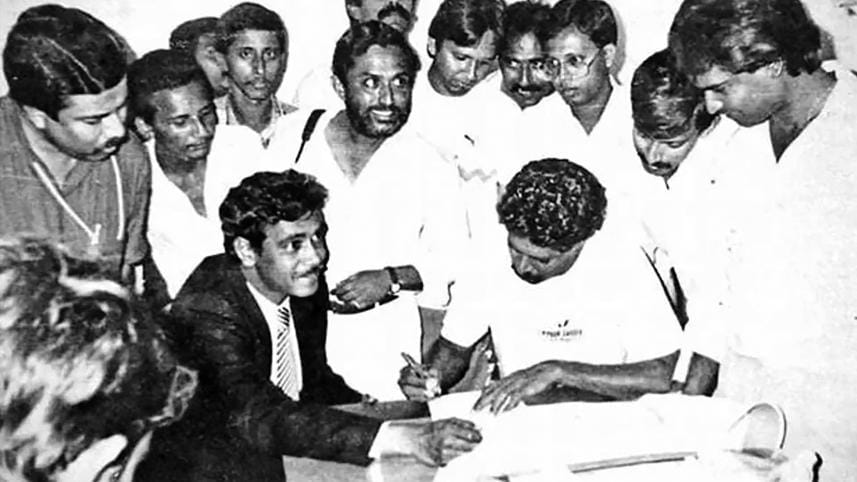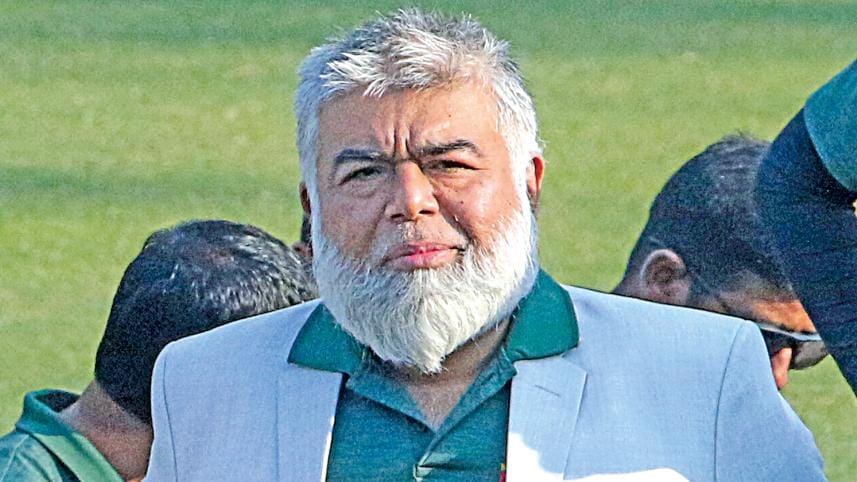‘More emotion in our time’

The Dhaka Premier League (DPL) has been the lone fifty-over domestic competition in Bangladesh that still has a huge impact in the country's cricket. Despite the rich history, the prestigious club-based competition lost its charm over the years. In an interview with Mazhar Uddin of The Daily Star, Salim Shahed, former Bangladesh cricketer who regularly featured for Mohammedan Sporting Club, shared his memories of the tournament alongside his assessment regarding making the DPL better in the coming days. The excerpts of the interview are as follows:

The Daily Star (DS): What did DPL mean for you during your playing days?
Salim Shahed (SS): During our time, as you know, the DPL was yet to be enlisted as a List A competition. We used to have first and second division leagues while the premier league was divided into two groups through the first division. Back then, our main focus point was the ICC Trophy since we were yet to get the Test status.
DS: Was the presence of world-class players like Wasim Akram, Neil Fairbrother, Arjuna Ranatunga in DPL a huge thing for the locals back then?
SS: The interesting part was that we could assess our standard. I remember, when I first played DPL, players like Ranatunga, DL Fernando and later Wasim Akram also played in our domestic league, Raman Lamba and Sandeep Sharma as well. So, there were many reputed international players in the Dhaka league. We could realise how much improvement we required while playing with these cricketers and, if we could perform well, it helped our confidence a lot.
DS: Any interesting story regarding the Dhaka league that you still recall?
SS: In most cases, the [DPL] title contenders back then were Abahani, Mohammedan, and Biman. One of these three teams were among the winners of the Damal Samal trophy, the league title, or the Shadhinota Cup. I recall we, Mohammedan, were unbeaten champions in the league during the 1995 season. It was a rare feat in that period and was very special for me, as a player.
DS: How do you compare the competitiveness of DPL of now and then?
SS: Now, I think, as a player you can be financially more stable and make it to the national team. We were mostly driven by passion, individual capacity, and love for the game. Yes, we had to financially struggle but now everything is professional, where you only have to perform to survive.
There was more emotion despite a lack of training facilities in our time. There were players like Yusuf Rahman Babu, who was one of the best cricketers of our time but not many from this generation knows about him. Many cricketers from our generation somehow didn't get the exposure.
DS: Do we still lack an ideal club culture?
SS: Look, it's a controversial topic. Our clubs have contributed a lot for the growth of cricket. Clubs generally groom cricketers from the grassroots and then they go on to play for the national team.
Since achieving Test status we got the age-level structure, which led to the likes of Tamim Iqbal, Mushfiqur Rahim, Shakib Al Hasan coming through this system. This, however, was not the case for us as clubs used to feed the national team back then. Now the BCB is grooming through age-level programmes but, definitely, clubs have had a huge impact on Bangladesh cricket, which is the reason our cricket has come this far.
DS: With the ongoing evolution of T20 cricket in mind, what areas should be improved to maintain competitiveness in DPL?
SS: Look, in order to make the DPL competitive, I feel we need to have strong facilities along with a good marketing team. If you look at the IPL or even the PSL, you can see the difference and the more people you can attract, the bigger the engagement will be.
Another thing is, as a player you have to own the team. If you change teams in every other season, it doesn't allow you to grow your emotions for the club.




 For all latest news, follow The Daily Star's Google News channel.
For all latest news, follow The Daily Star's Google News channel.
Comments